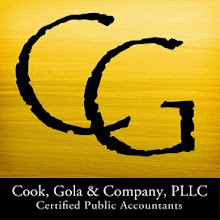“If it looks like a tax and is enforced like a tax, it’s a tax,” Orrin Hatch
As a CPA, my eye is always in ‘search mode’ for the word TAX. I know that any changes in tax legislation will affect me personally as well as our business. The universal health care proposal falls in this category.
Among the provisions of several of the proposed health care bills is essentially to charge a fee (Tax) to anyone that does not carry health insurance. The fee (Tax) will be reported and paid on the taxpayer’s annual tax return. The latest legislative update indicates that taxpayers will be charged $3,800 per family should they choose not to carry insurance.
As I just mentioned, this fee will be reported on the offenders’ annual tax return. Under the proposed new system, paid tax preparers would become the insurance police. When you go to have your return prepared, you will have to provide proof of health insurance....just like you do for your automobile. If you don’t have it, we will add $3,800 to your tax liability. I assume that this will be a new line item on the Form 1040.
I can hear it now: “I never have to pay additional taxes.” “I always get a refund!” I imagine that there will be other unflattering words before I can explain what actually occurred.
My suggestion to all of our clients that do not carry health insurance will be to increase their withholding amount by about $300 per month. This will mean less money going in the bank to pay bills, but at least they will not come up short at the end of the year. Oh yes, also remember that if your taxes are underpaid, there is a penalty. Penalties on top of fees – you have to love our tax system!
As a single male, sixty years old, I pay a little over $500 per month for a modest health insurance policy. So, if hard times set in and I drop my insurance, I will save $6,000 per year. My taxes, however, will increase $3,800 and have to be paid on my Form 1040. Quite a fee for someone who has chosen to accept the responsibility that comes with being uninsured.
If you are under the federal poverty level (yet to be determined), you will have to complete a separate form and submit the form to some as-yet unknown federal agency. They will determine if you are qualified for the federal insurance subsidy. The federal subsidy will be paid directly to an insurance company on your behalf. For most people, the subsidy will not cover the entire premium. The individual will be required to fund the difference. If the individual does not fund their part, then you will have a partially funded but inactive insurance policy with your name on it.
The good news for CPAs is that income verification is normally provided by tax returns and W-2s. The basic tax returns, however, will be more complicated. Listening to the moaning and groaning will take time and patience. There will also be another federal agency to deal with. At least all of this is billable time!
--Steve Cook is the managing partner for Cook & Associates, an accounting firm offering a full range of accounting, tax, auditing, and consulting services to clients from offices in San Antonio and San Marcos, TX
Subscribe to:
Post Comments (Atom)



No comments:
Post a Comment